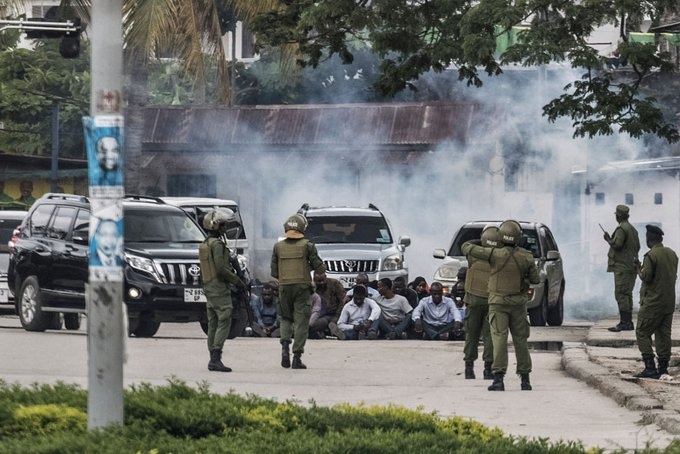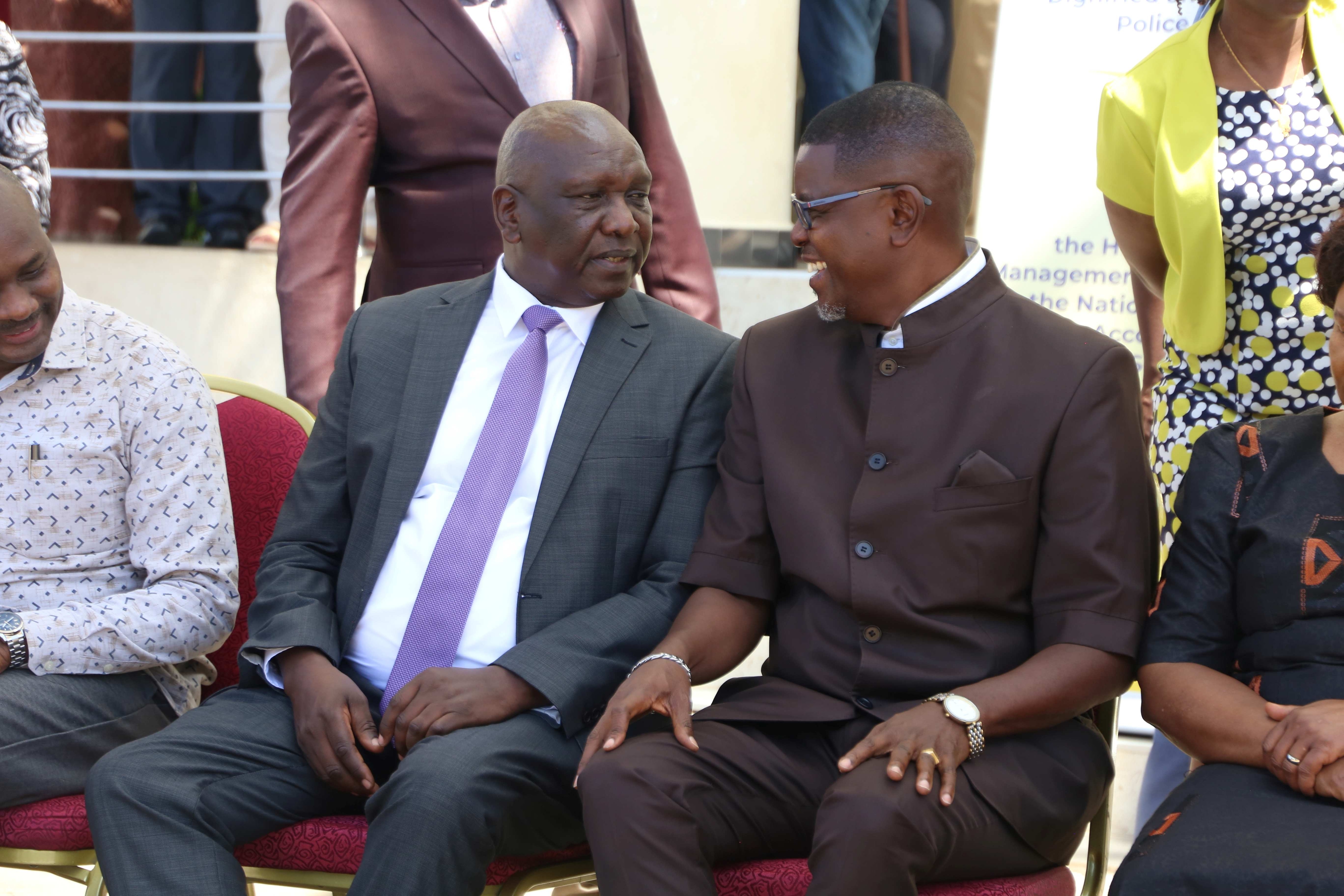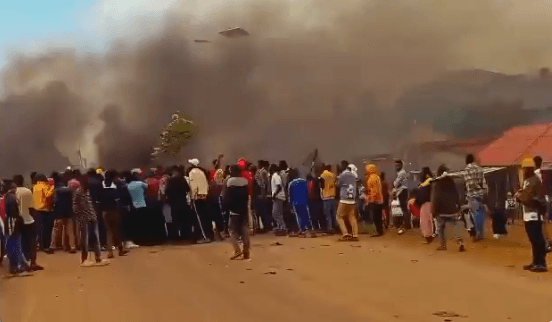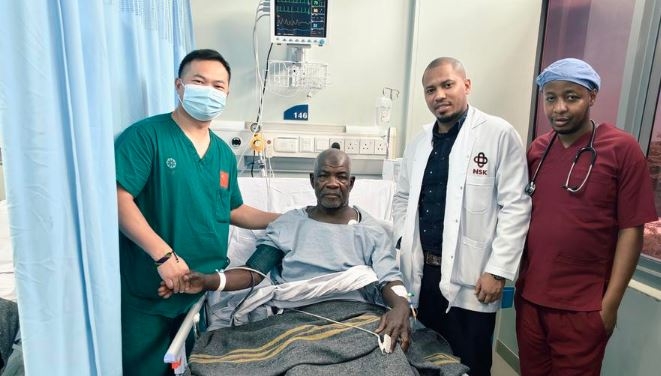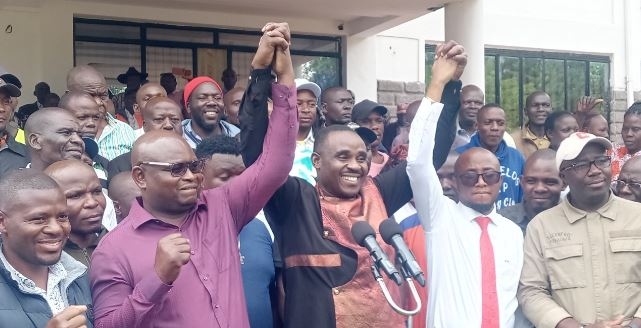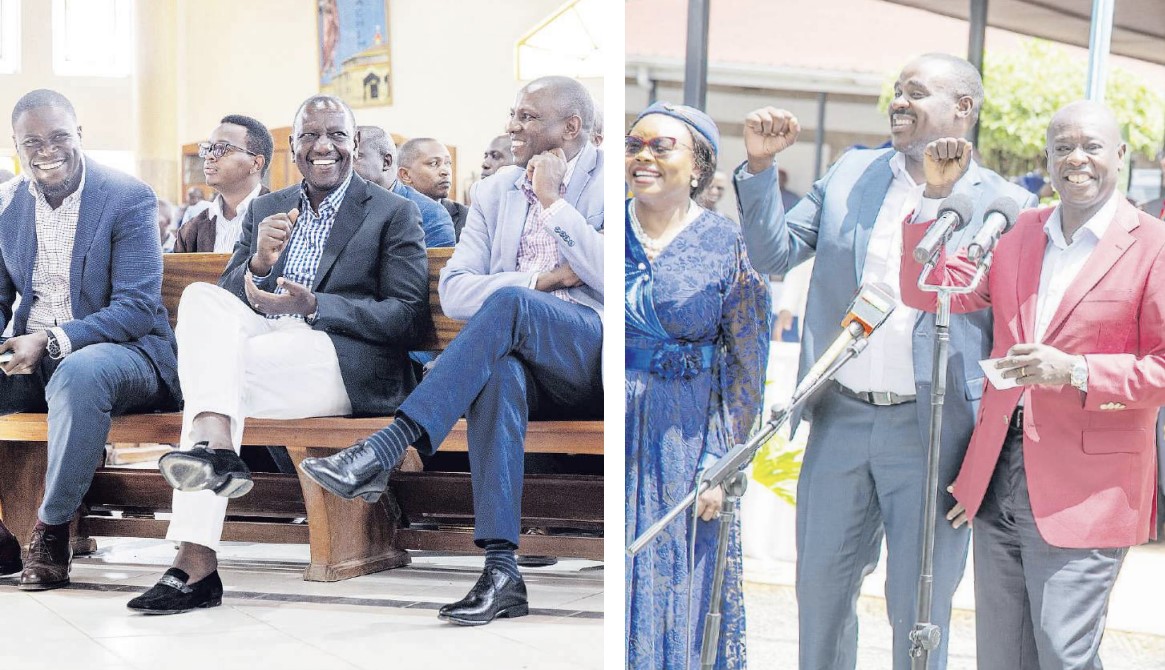
President William Ruto and his estranged former deputy Rigathi Gachagua have gone flat out to woo the church as part of their strategy to win the support of Kenyans.
Gachagua, apparently reeling from the impeachment that cut short his stay at the country’s second topmost seat, is defending the church against attacks by MPs and government functionaries.
In his strategy, the impeached Deputy President has retreated to the church as a platform to air his views and speak to his supporters.
When he joined worshippers for a Sunday service at PCEA Kerarapon Church, Kajiado North, Gachagua warned MPs against reviving the intolerant politics of President Daniel arap Moi’s era.
He warned lawmakers that attacking the church was suicidal politically, in response to comments by Deputy Speaker Gladys Shollei and Senate Majority Leader Aaron Cheruiyot.
Gachagua said historically, there has never been a happy ending for leaders who insulted the clergy.
The two lawmakers took on Catholic bishops head-on, alleging their criticism of the Kenya Kwanza administration was based on falsehoods.
President Ruto and his deputy Kithure Kindiki have made an about-turn and toned-down remarks that could appear to deride the clergy.
They are now calling for dialogue with religious organisations on their lamentations about the government’s service delivery.
“The government has no fight with the church because we know governments across the world are led by humans. We are open to receive opinions on how we can improve the government’s performance for the sake of Kenyans,” Kindiki said.
The Deputy President, who joined worshippers at AIPCA Central-Western Archdiocese in Sagana, Kirinyaga county, said the government recognises the “input of other voices.
“In particular, we have no problem with the input of the church, civil society and all members of society,” Kindiki said.
In what points to the church’s special place in the 2027 poll battle, Ruto and Kindiki have decided to attend church services separately in a move seen as intended to thaw their icy relations with the clergy.
Several kilometers away, his boss also sent a similar message, coming at a time the government is on high alert over misinformation about its legacy plans.
President Ruto said he was ready for talks with not only religious leaders but also Kenyans on their cries.
The President has struck a conciliatory tone with the clergymen compared to the swift responses of his team, who lashed out at the bishops.
“I accept the pressure because this country must progress. I have no doubt in my mind that Kenyans is going to change,” the President said.
This was the third event hosted by the Catholic Church the President was attending in a row, a day after he shared a podium with his predecessor Uhuru Kenyatta and his deputy in Embu at an episcopal ordination.
On Friday, Ruto was the chief guest at the first graduation ceremony of the newly chartered Tangaza University, run by the Catholic Church.
Political optics took centre stage in the meeting, which came hot on the heels of the harsh criticism by Catholic bishops against the Ruto administration.
Leaders who accompanied the President, among them National Assembly Majority Leader Kimani Ichung’wah and Nairobi Governor Johnson Sakaja, also encouraged feedback.
“On the ‘greetings’ we received from Catholic bishops, we are happy the President has taken them in stride. You (President) will receive more ‘greetings’ until you deliver all promises you made to Kenyans because Kenyans know you are a performer,” Ichung’wah said.
Sakaja said, “As you move towards a goal, you move step by step. While you are in the process of achieving the goal, that does not mean they are lies.”
Pundits point that the change of tack follows pressure from Kenyans and advisories of politicians who have warned attacks would work to Gachagua’s advantage.
“The church is also another government. It is the first point of interaction with the people. Every average person goes to church, the poor or the rich. Church is highly aware of the feeling on how the country is,” said political analyst Charles Munyui.
For the pundit, the church and the state must sit together, resolve issues, since it has a critical role in the country’s growth and development.
“The church has health and education facilities, some of which need government intervention. The moment you align thoughts with the church, the people feel represented,” Munyui stated, maintaining that the ongoing conversation was good and should be encouraged.
Religious groups have historically frustrated the government, notably in 2005 when they joined the opposition which ended up defeating the Mwai Kibaki-backed proposed new constitution.
The church was among the institutions that catapulted Ruto to power in the heated poll contest that pitted him against his political nemesis Raila Odinga of Azimio coalition.
President Ruto charmed his way to the masses by the numerous church services he attended across the country.
While at it, they painted Azimio as critical of religion, and weaponised Raila’s call then for regulation of churches.
As such the government is argued to be keen on not severing ties with the critical voting bloc and mobilisation platform.
In his call for caution, Gachagua, as well as MPs who joined him for the Sunday service, said the government should stop interfering with churches.
“The
voice of the church is the voice of God. When our spiritual fathers speak, they
don’t just speak in vain. I don’t think over 30 bishops can meet and make a
statement from nowhere,” he said.
The ousted DP said
the church leaders “know what the gro




